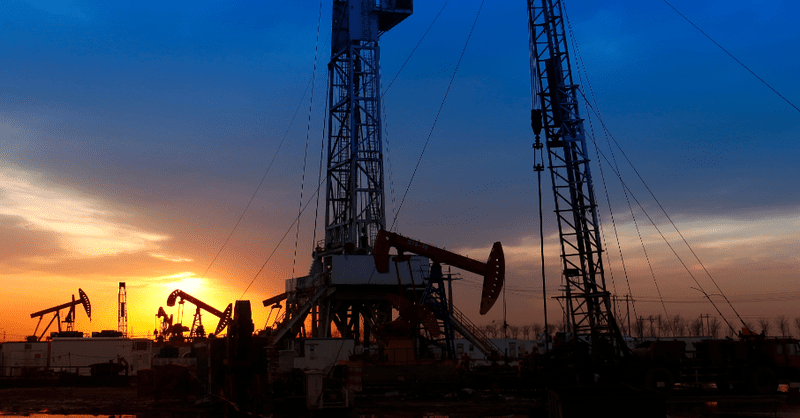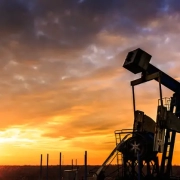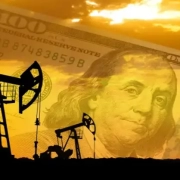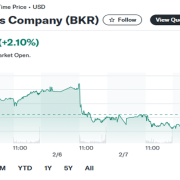⚠️ IMPORTANT LEGAL DISCLAIMER:
The information provided on this page is for general informational purposes only and does not constitute legal, financial, or investment advice. Oil and gas laws, mineral rights regulations, and royalty structures vary significantly by state and jurisdiction. While we strive to provide accurate and up-to-date information, no guarantee is made to that effect, and laws may have changed since publication.
You should consult with a licensed attorney specializing in oil and gas law in your jurisdiction, a qualified financial advisor, or other appropriate professionals before making any decisions based on this material. Neither the author nor the publisher assumes any liability for actions taken in reliance upon the information contained herein.
Leasing land for oil and gas exploration and extraction is a significant decision that can potentially offer substantial financial returns. However, many landowners, particularly those new to the industry, often have misconceptions about the process. These myths can cause confusion, hesitation, or poor decision-making that may not be in the landowner’s best interest. Understanding the truth behind these myths is essential for making an informed and profitable decision about leasing your land for oil and gas exploration.
In this article, we’ll delve into some of the most common myths about leasing land for oil and gas, debunking these misconceptions with facts and providing landowners with the necessary knowledge to navigate the leasing process confidently.
Leasing Your Land Always Leads to Immediate Profit
One of the most common myths about leasing land for oil and gas extraction is the assumption that leasing will immediately result in a large, consistent income. While leasing your land can generate significant revenue, especially if a high concentration of valuable resources lies beneath the surface, it does not always guarantee immediate profit.
Leasing companies typically provide landowners with an upfront signing bonus, which is a one-time payment when they sign the lease. However, the amount of money landowners make from the lease after that depends on the actual extraction of oil and gas, as well as the market price of the commodities. In many cases, the drilling process can take months or even years to begin, depending on the development plans of the oil and gas company.
Additionally, once production begins, the income from royalties—typically a percentage of the revenue generated from oil and gas extraction—may fluctuate based on commodity prices, drilling efficiency, and overall market demand. The revenue from oil and gas royalties may be inconsistent, particularly with the volatility of energy prices. Therefore, while leasing your land has the potential for significant profit, it is not a guarantee of immediate financial gain.
You’ll Always Be Paid the Same Royalty Rate
Another common myth is that all oil and gas leases offer the same royalty rate. Royalty rates, which represent the percentage of production revenues that landowners receive, can vary widely depending on several factors, such as the location of the land, the negotiating power of the landowner, and the specifics of the lease agreement.
In some cases, oil and gas companies may offer lower royalty rates to secure a lease, particularly if the land is in an area with lower resource potential or if the lease is not very competitive. On the other hand, landowners in highly sought-after regions may be able to negotiate higher royalty rates, especially if there is significant demand for the land or if the resources beneath the land are valuable.
Landowners should understand that they can negotiate royalty rates before signing the lease agreement. By working with legal experts or industry consultants, they may be able to secure more favorable terms and higher royalty rates, ensuring they receive a fair percentage of the revenue generated by their land.
Leasing Land Means You Lose Control of Your Property
A widespread myth about leasing land for oil and gas is that doing so means landowners lose all control over their property. In reality, leasing land for exploration and extraction does not result in the complete loss of control. While oil and gas companies do gain access to the land for drilling and production, the lease agreement is a contract that specifies the terms and conditions of the land use.
Leasing agreements typically specify what activities the oil and gas company can and cannot perform on the land. While the company may have the right to drill and extract resources, landowners often retain rights to the surface of the property for other uses, such as farming, grazing, or residential development—provided these activities do not interfere with the oil and gas operations.
Furthermore, lease agreements often include clauses that outline how the land should be managed, such as provisions for environmental protection, reclamation of the land after drilling, and safety measures. The landowner can negotiate these conditions to ensure their interests are protected, allowing them to maintain a level of control over how the property is used and ensuring that the oil and gas company meets certain standards.
All Oil and Gas Companies Offer the Same Terms
Many landowners mistakenly believe that all oil and gas companies offer the same lease terms, but this is far from the truth. Different companies have different operational goals, financial stability, and strategies, which can affect the lease terms they offer.
Some companies may offer generous signing bonuses, while others may be more conservative with upfront payments but provide better royalty rates. The terms of the lease can also vary based on the company’s desire to lease land in a specific region, the availability of resources, and the anticipated costs of drilling and extraction.
It’s important for landowners to shop around and compare offers from multiple companies before entering into a lease agreement. By doing so, they can ensure they are getting the best possible deal and maximize the potential benefits of leasing their land.
Once a lease agreement is signed, many landowners believe they no longer have responsibilities or obligations.
Once a lease agreement is signed, many landowners believe they no longer have responsibilities or obligations. While it’s true that landowners are not responsible for the day-to-day operations of drilling and extraction, there are still several ongoing responsibilities and considerations that landowners should keep in mind.
First and foremost, landowners need to ensure that they stay informed about the activities taking place on their land.
They should regularly communicate with the oil and gas company to monitor the progress of drilling operations and ensure adherence to the terms of the lease. This includes verifying that the company pays the agreed-upon royalties, adheres to environmental standards, and takes care of land reclamation after completing drilling.
Landowners may also be responsible for granting access to the land for maintenance, monitoring, and inspection purposes. Ensuring the land is accessible and that any potential issues are promptly addressed will help maintain the integrity of the lease agreement and ensure that production proceeds smoothly.
Oil and Gas Companies Are Always Environmentally Irresponsible
One of the most significant concerns many landowners have when leasing their land for oil and gas exploration is the potential environmental impact. While the oil and gas industry has faced scrutiny over environmental concerns, particularly related to hydraulic fracturing (fracking) and its potential impact on groundwater, it’s important to recognize that not all companies engage in irresponsible environmental practices.
In recent years, many oil and gas companies have invested in technologies and processes aimed at reducing their environmental footprint. These innovations include advances in fracking techniques that minimize water usage, the use of cleaner energy sources, and the implementation of more rigorous safety standards. Companies operating in areas with strict environmental regulations must adhere to specific guidelines designed to minimize damage to the land and surrounding ecosystems.
Additionally, many lease agreements include clauses that require oil and gas companies to take specific actions to protect the environment, such as using best practices for waste management, reducing emissions, and restoring the land after production has ended. Landowners who are concerned about the environmental impact of leasing their property should review these clauses carefully and ensure that the lease terms include provisions for environmental protection.
Leasing Your Land Means a High Risk of Legal Issues
Another misconception is that leasing land for oil and gas exploration is a high-risk endeavor fraught with legal complications. While it is true that legal issues can arise in any industry, the reality is that leasing land for oil and gas is a well-established and regulated process. As long as landowners carefully review and negotiate their lease agreements, work with legal professionals, and ensure that all aspects of the lease are clear and binding, the likelihood of legal problems is minimal.
Many landowners find it helpful to work with attorneys or landman services who specialize in oil and gas leases.
These professionals can help you navigate the complexities of lease negotiations, ensuring that they protect the landowner’s rights and interests.
They can also offer guidance on how to resolve any disputes that may arise during the life of the lease.
Leasing Your Land Is Only Profitable If You Own Mineral Rights
Many landowners believe that they cannot lease their land for oil and gas exploration unless they own the mineral rights beneath the surface. However, this is not always the case. In some instances, even if a landowner does not own the mineral rights, they may still be able to enter into a lease agreement with the mineral rights owner or negotiate a share of the royalties through a lease with the company.
Landowners who do not own the mineral rights but are interested in leasing their land should seek legal counsel to understand their options. Various arrangements exist, and a knowledgeable professional can help landowners find a path to profitability, even if they do not own the minerals beneath their property.
Leasing land for oil and gas extraction can be a profitable venture, but it’s essential for landowners to separate fact from fiction when considering the decision. The myths surrounding land leasing often result from misconceptions about the leasing process, the terms of agreements, and the risks involved.
By understanding the truth behind these myths, landowners can make more informed decisions about leasing their land for oil and gas, maximizing their potential for financial gain while mitigating risks. Whether you are a seasoned landowner or new to the industry, understanding the realities of land leasing will help you navigate the complexities of the oil and gas world and ensure that you make the best choices for your property and future.
Do you have further questions related to Leasing your land for oil and gas Top myths? Reach out.











